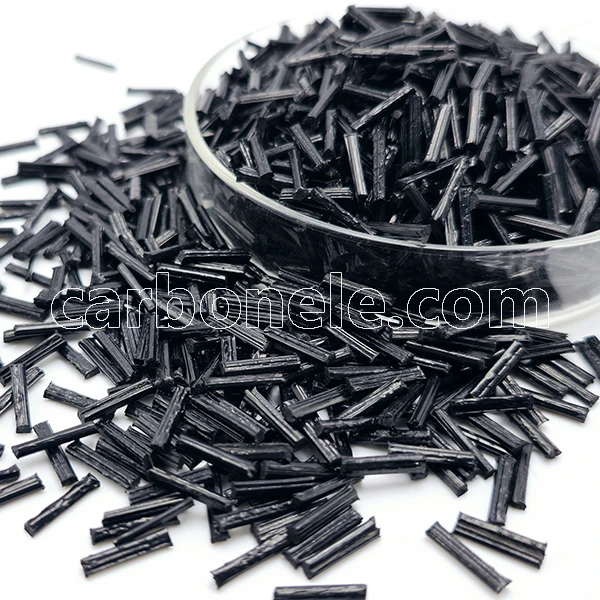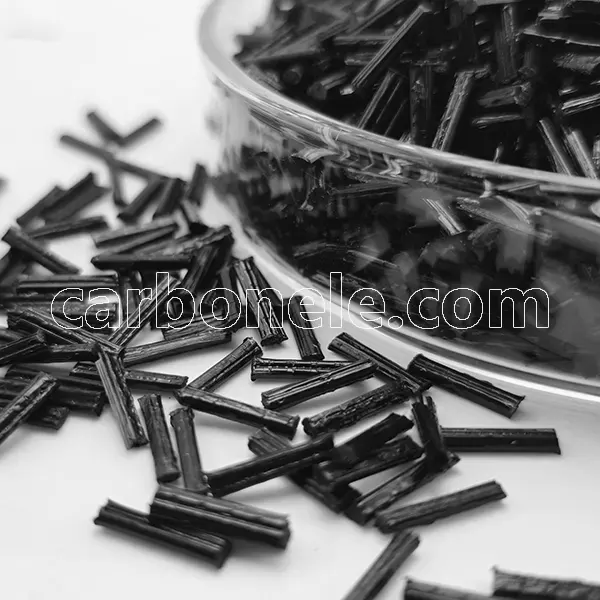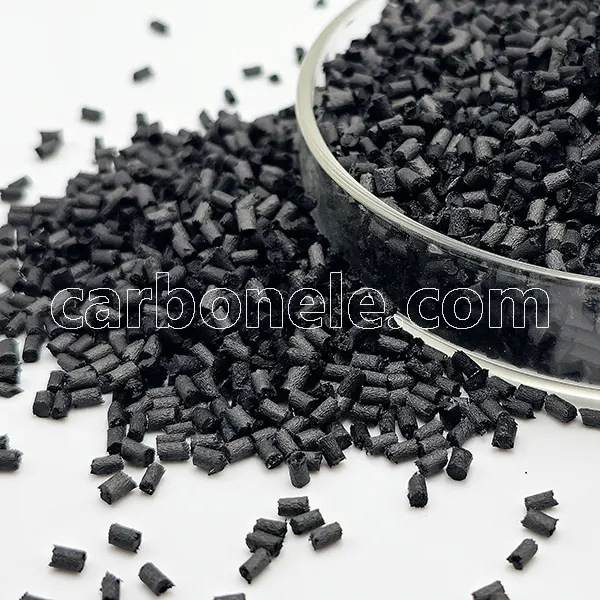
Applications Of ABS CF In The Drone Industry - Carbon Fiber Compounds Manufacturer | Supplier
Applications of ABS CF in the Drone Industry
In recent years, the drone industry has witnessed remarkable growth and innovation, with various materials playing crucial roles in enhancing the performance and functionality of these unmanned aerial vehicles (UAVs). Among them, ABS CF (Acrylonitrile Butadiene Styrene with Carbon Fiber) has emerged as a highly valuable material due to its unique combination of properties. This article will explore the diverse applications of ABS CF in the drone industry.
1. Drone Frame Construction
The frame is the backbone of a drone, providing structural support and stability. ABS CF is an excellent choice for this application. Its high strength-to-weight ratio, attributed to the reinforcement of carbon fiber within the ABS matrix, allows for the creation of lightweight yet robust frames. A lighter frame reduces the overall weight of the drone, which in turn increases its flight time and maneuverability. Additionally, the stiffness of ABS CF ensures that the frame can withstand the mechanical stresses generated during flight, such as vibrations and aerodynamic forces. This helps maintain the integrity of the drone’s structure and protects the internal components from damage.
For example, in racing drones, where speed and agility are of utmost importance, ABS CF frames offer a significant advantage. The lightweight design enables the drones to accelerate quickly and make sharp turns, giving pilots a competitive edge. Moreover, the durability of ABS CF ensures that the frames can withstand the rigors of high-speed flights and potential crashes, reducing the need for frequent repairs or replacements.
2. Landing Gear Components
The landing gear of a drone is responsible for absorbing the impact during takeoff and landing, as well as providing stability while the drone is on the ground. ABS CF can be used to manufacture various landing gear components, such as legs and skids. The material’s impact resistance and toughness make it well-suited for this application. When a drone lands, the landing gear needs to be able to absorb the shock and prevent damage to the drone’s body and internal components. ABS CF’s ability to withstand impacts without cracking or breaking ensures the safety and longevity of the drone.
Furthermore, the low friction coefficient of ABS CF can also be beneficial for landing gear components. It reduces the resistance between the landing gear and the ground, allowing for smoother landings and takeoffs. This is particularly important for drones that operate on rough or uneven surfaces, where a high friction coefficient could cause the drone to tip over or lose stability.
3. Motor Mounts
Motor mounts are essential components that hold the drone’s motors in place and transmit the power from the motors to the propellers. ABS CF is an ideal material for motor mounts due to its high strength and stiffness. The motor mounts need to be able to withstand the high torque and vibrations generated by the motors during operation. ABS CF’s ability to resist deformation under these conditions ensures that the motors remain securely mounted and aligned, which is crucial for the efficient operation of the drone.
In addition, the heat resistance of ABS CF can also be an advantage for motor mounts. Motors generate heat during operation, and if the motor mounts are not able to dissipate this heat effectively, it can lead to overheating and reduced performance. ABS CF’s heat resistance properties help to prevent the motor mounts from warping or melting due to the heat generated by the motors, ensuring the reliability and longevity of the drone’s propulsion system.
4. Camera Mounts and Gimbal Components
Many drones are equipped with cameras for various purposes, such as aerial photography, videography, and surveillance. ABS CF can be used to manufacture camera mounts and gimbal components, which are responsible for holding the camera in place and providing smooth and stable movement. The material’s precision and dimensional stability are crucial for this application. The camera mounts and gimbal components need to be able to hold the camera securely and accurately, ensuring that the images and videos captured by the camera are clear and stable.
Moreover, the lightweight nature of ABS CF can also be beneficial for camera mounts and gimbal components. A lighter camera mount reduces the load on the drone’s motors and battery, which can increase the flight time and performance of the drone. Additionally, the material’s corrosion resistance can help to protect the camera mounts and gimbal components from damage caused by environmental factors, such as moisture and salt spray, ensuring the longevity of the camera system.
5. Battery Housings
The battery is the power source of a drone, and its housing plays an important role in protecting the battery and ensuring its safe operation. ABS CF can be used to manufacture battery housings due to its excellent electrical insulation properties and impact resistance. The electrical insulation properties of ABS CF prevent the battery from short-circuiting, which can be a serious safety hazard. Additionally, the impact resistance of the material ensures that the battery housing can withstand the shocks and vibrations that the drone may experience during flight, protecting the battery from damage.
In addition, the heat resistance of ABS CF can also be an advantage for battery housings. Batteries generate heat during operation, and if the battery housing is not able to dissipate this heat effectively, it can lead to overheating and reduced battery performance. ABS CF’s heat resistance properties help to prevent the battery housing from warping or melting due to the heat generated by the battery, ensuring the reliability and longevity of the battery.
In conclusion, ABS CF has a wide range of applications in the drone industry, from frame construction to battery housings. Its unique combination of properties, such as high strength, lightweight, impact resistance, heat resistance, and dimensional stability, makes it an ideal material for enhancing the performance, functionality, and durability of drones. As the drone industry continues to grow and evolve, the use of ABS CF is likely to become even more widespread, driving further innovation and advancement in this exciting field.
Feature Product
-
PA12 LCF30 for Drone Fuselages & Wings
What do you know about PA12 LCF30? PA12 ...
-
Competitive Price PA6 LCF30 Composites
What’s it? PA6 LCF30, which stands...
-
ABS CF10 Compound ABS 10%CF Thermoplastic Compo...
What’s ABS CF10? ABS CF10 refers t...











